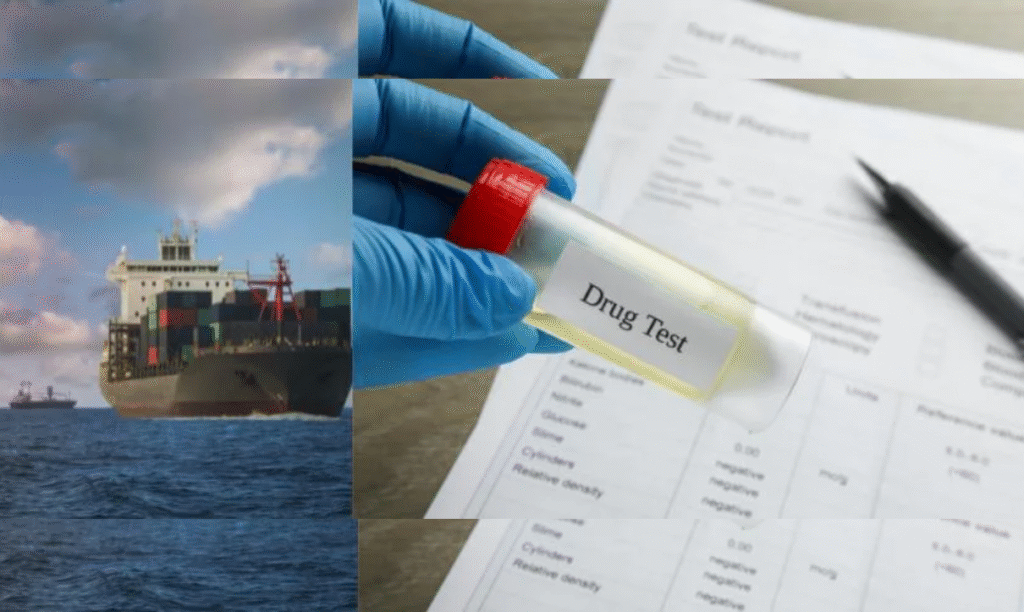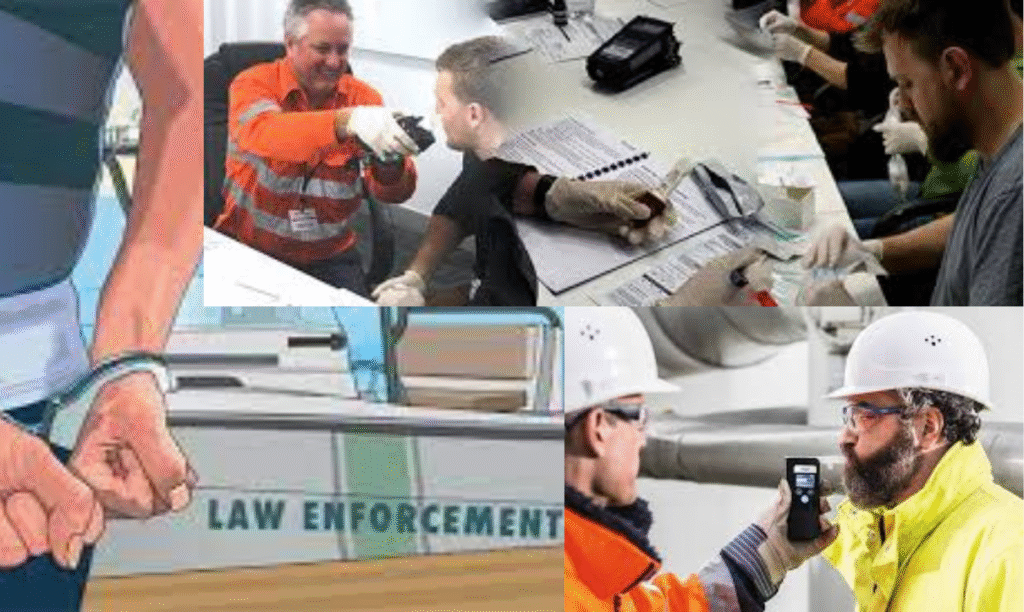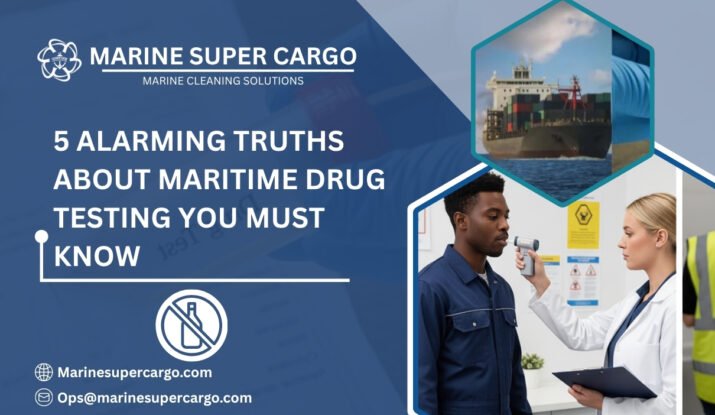The ocean is unpredictable—calm waters can turn into violent storms in minutes. For shipowners, operators, and crew members, every decision at sea must be precise, timely, and responsible. Even a momentary lapse in judgment can lead to accidents, environmental damage, or loss of life. When focus is impaired by drugs or alcohol, the consequences can be severe and far-reaching.
This is where maritime drug testing becomes essential. Far beyond a mere regulatory formality, it serves as a critical safeguard, ensuring that crew members remain fit for duty and capable of performing under high-stress conditions. By implementing regular testing, maritime organizations protect their people, comply with international regulations, and maintain safe, efficient, and reliable operations at sea.
What Is Maritime Drug Testing?
Maritime Drug Testing refers to systematic programs designed to detect drug or alcohol use among seafarers, ensuring fitness for duty and compliance with international regulations.
Think of it as a lighthouse guiding safe navigation: it sheds light on hidden risks and keeps vessels, cargo, and crew safe from disaster.
Key Features Include:
- Pre-employment screening to confirm candidates meet safety standards.
- Random testing acts as a deterrent.
- Post-incident testing for greater accountability.
- Return-to-duty clearance that protects ongoing operations.
Through these measures, Maritime Drug Testing reduces human error—the single most unpredictable element at sea. Learn more about Powerful Reasons Drug and Alcohol Testing Matters.

Why Maritime Drug Testing Is Vital
Consider a ship in open waters, where one impaired crew member’s mistake could trigger a chain reaction—collision, cargo loss, or environmental damage. Testing reduces such risks to near zero.
Benefits of Maritime Drug Testing include:
- Maximizing onboard safety by reducing impairment-related accidents.
- Enforcing compliance with international maritime law.
- Protecting the environment against oil spills and collisions.
- Maintaining smooth operations and safeguarding reputations.
- Reducing insurance premiums and liabilities.
It’s not about policing—it’s about prevention, like putting sturdy locks on a vessel’s most important doors.
The Rules Behind Maritime Drug Testing
Maritime operations have some of the most rigorous safety requirements globally.
- IMO (International Maritime Organization): Stresses that vessel crews must remain fit for duty.
- MARPOL Convention: Prevents marine pollution from human error or negligence.
- IMCA (International Marine Contractors Association): Pushes for a strong, accountable safety culture.
- IAPH (International Association of Ports and Harbors): Upholds common safety standards worldwide.
Maritime Drug Testing ensures all these bodies’ rules are met, guarding against penalties and safeguarding international credibility.
Connection Between Drug Testing and Maritime Safety
Crew impairment is one of the most underestimated risks at sea. Unlike machinery failures, which can be scheduled for maintenance, human impairment is invisible—unless tested.
Maritime Drug Testing ensures:
- Better decision-making during critical operations.
- Less downtime due to accidents or investigations.
- Safer cargo handling and navigation.
- Reduced risk of costly environmental fines.
Safe crew equals safe seas. Testing is essentially preventive maintenance for the human element of maritime operations. Read more about the Surveyor’s role during hull cleaning operations
Myths About Maritime Drug Testing
Misunderstandings still make some organizations skeptical. Common myths include:
- “It’s invasive.” In reality, data privacy and tests are handled with strict confidentiality.
- “It lowers morale.” The opposite is true—responsible crews feel safer and more valued.
- “It’s expensive.” Compared to a single environmental fine, drug testing costs are minimal.
The truth? Maritime Drug Testing saves both lives and money.
✅ 4 Things to Check for Safety at Sea pic.twitter.com/dAxhJQ2i6U
— Marine Super Cargo (@Marinsupercargo) September 14, 2025
Future of Maritime Drug Testing
Technology is making testing faster, fairer, and smarter every year.
- Saliva-based testing is non-invasive with instant results.
- AI-assisted fatigue monitoring helps predict risky behaviors.
- Digital reporting systems ensure secure, audit-ready compliance.
- Integration into SMS (Safety Management Systems) creates holistic safety oversight.
The next wave of innovation ensures drug and alcohol testing will become seamless, efficient, and widely accepted.
Marine Supercargo Expands Services: Drug & Alcohol Testing for Safer Seas
Marine Supercargo, renowned for its global marine sustainability platform CleanShip.co, has recently expanded into drug & alcohol testing services—filling a significant gap in maritime safety.
This new service provides shipowners, operators, and managers with professional testing solutions that ensure compliance with international safety standards established by IMO, MARPOL, and IMCA. Beyond compliance, it safeguards crew fitness, minimizes accident risks, and prevents costly port delays.
By coupling cleaning operations with testing, Marine Supercargo delivers a holistic approach to environmental and safety stewardship. The expansion reflects a growing recognition that safe crews are just as vital as clean, efficient vessels. Together, these measures promise safer seas and more sustainable global trade.

Best Practices for Implementing Maritime Drug Testing
How can you integrate testing without disrupting operations?
- Formalize testing policies and align them with international standards.
- Communicate transparently with the crew to build trust.
- Train officers to recognize impairment signals early.
- Audit test procedures to guarantee compliance readiness.
- Record securely for accurate reporting and protection.
When implemented fairly, Maritime Drug Testing fosters cooperation, trust, and accountability at sea.
Conclusion
Maritime Drug Testing is much more than compliance—it’s the foundation of safe, reliable operations and environmental responsibility. Without it, companies risk accidents, reputational harm, and costly consequences.
Key Takeaways:
- Drug and alcohol testing ensures compliance with IMO, IMCA, and MARPOL.
- It proactively prevents accidents and environmental disasters.
- Innovation will make maritime testing simpler and more efficient in the future.
Stay ahead of regulatory and safety demands—explore smart compliance solutions at CleanShip.co to ensure safer seas and stronger operations.
FAQs:
Q1. Why is Maritime Drug Testing important for ship crews?
Because impairment severely increases the risk of accidents, collisions, and oil spills. Drug testing ensures all crew members remain fit for duty at sea
Q2. How does testing support international regulations?
It ensures compliance with IMO, MARPOL, and IMCA safety standards, reducing the risk of penalties while safeguarding crew, cargo, and marine ecosystems
Q3. Can Maritime Drug Testing lower costs?
Yes. It reduces accident-related downtime, litigation expenses, and insurance claims while preventing costly regulatory fines
Q4. Does it improve crew morale?
When implemented fairly, yes. Testing reassures responsible seafarers that safety is prioritized for everyone’s benefit onboard.
Q5. Why connect testing with hull cleaning?
Both practices reduce risk—hull cleaning improves efficiency and fuel savings, while testing minimizes human error. Together, they strengthen sustainable maritime operations.


